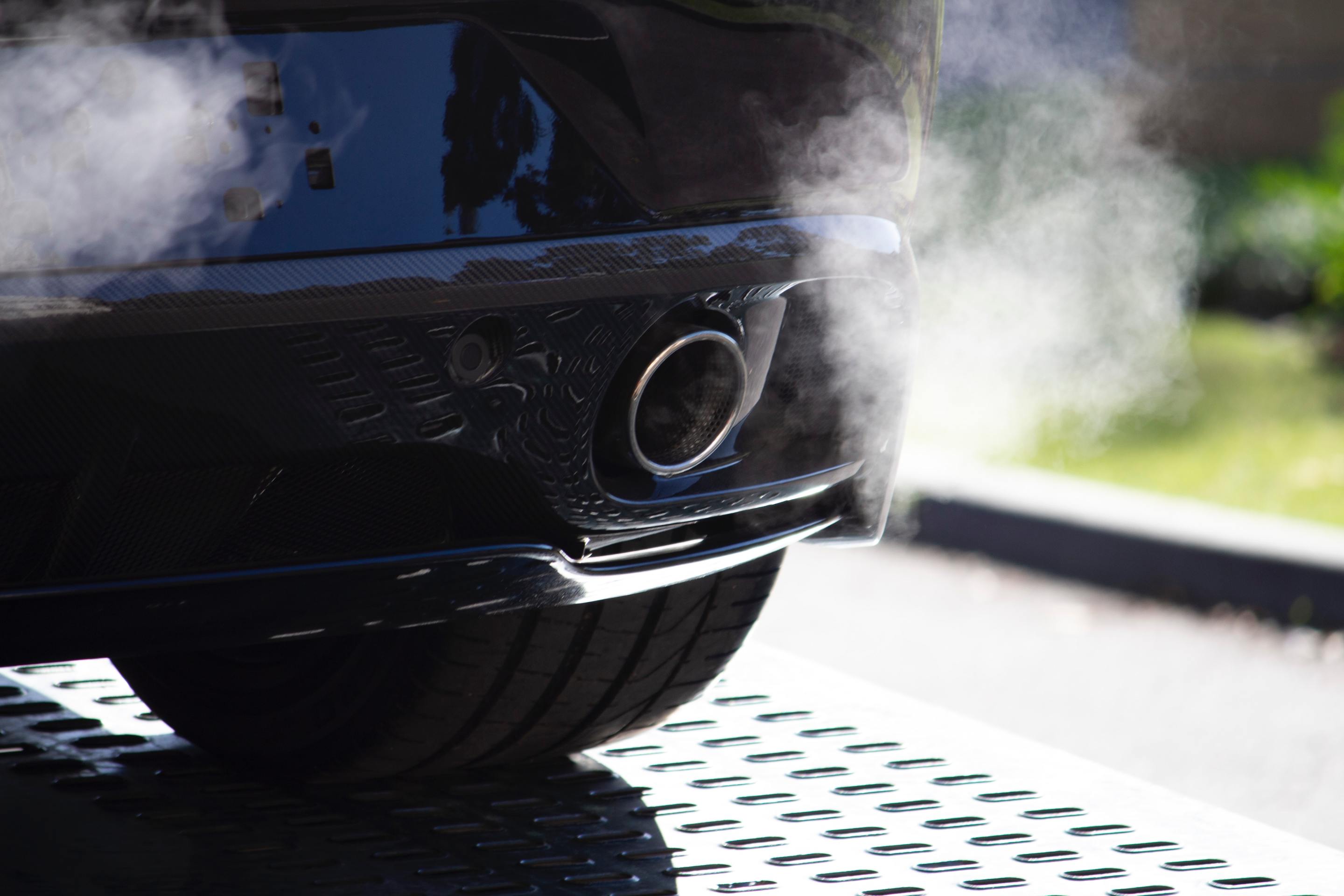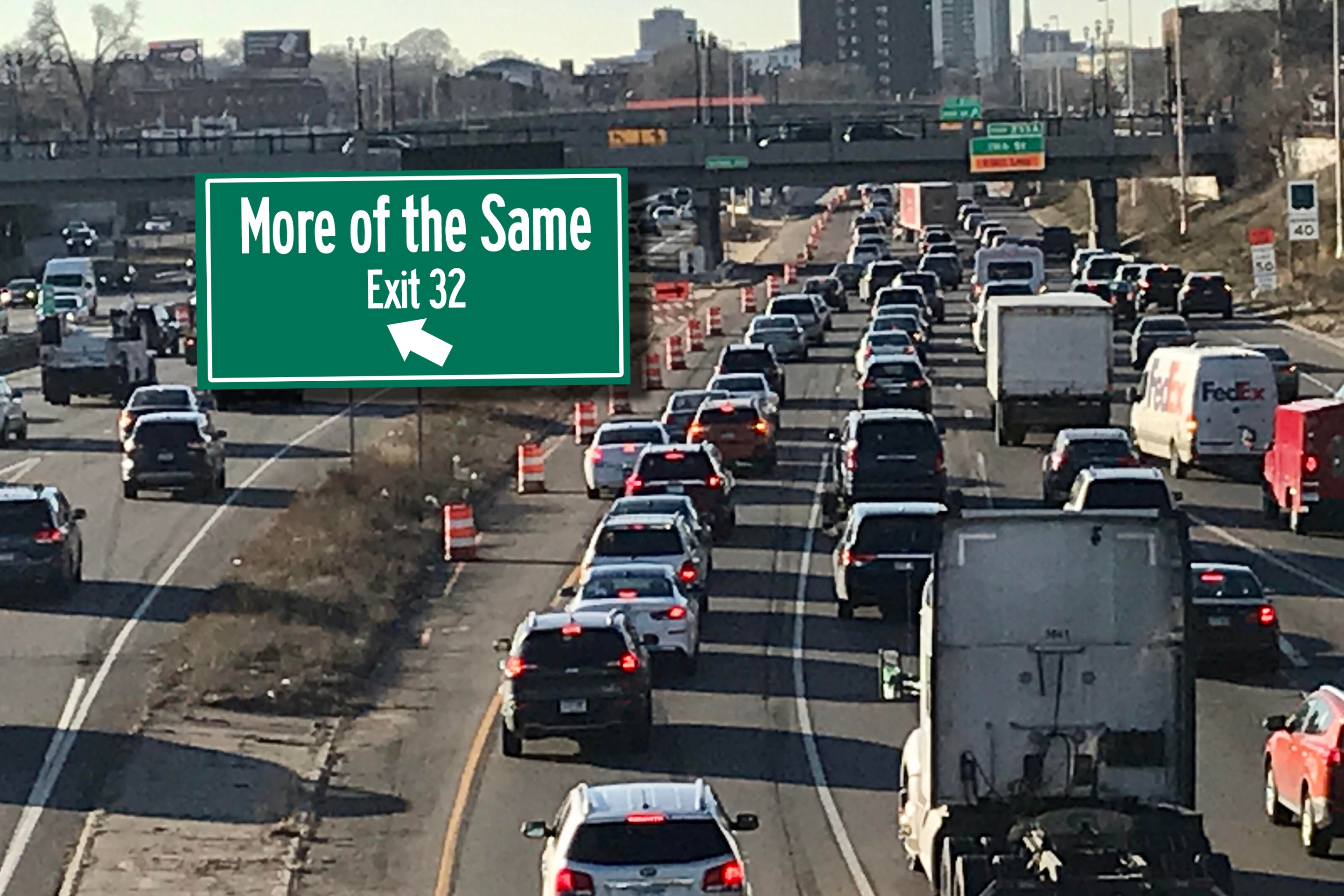 Northrop Grumman's current offices in Virginia. (Photo: the monk via Flickr)
Northrop Grumman's current offices in Virginia. (Photo: the monk via Flickr)The Harvard Business Review piece about forward-thinking businesses moving to urban rather than suburban locations continues to attract hopeful attention around the Streetsblog Network.
But as some bloggers are pointing out, the trend -- if it is one -- is far from clear-cut.
First, FABB Blog (the blog of Fairfax Advocates for Better Bicycling) asks whether the Virginia county's recent withdrawal of support for bicycling infrastructure funding will make it less appealing to businesses in the future, in part because many young workers want to live and work in less car-dependent communities:
We've seen this shift in the increase in people who are choosing bikes for transportation. They are mostly younger people who are sick of being stuck in traffic, of paying $3/gallon for gas, and who want better bike facilities. Communities like DC, NYC, and Arlington County understand this shift and are changing their environment in response. Older, less progressive communities like Fairfax are finding it difficult to move away from the older mindset of moving more people in more cars on wider roads.
FABB Blog cites the example of a suburban office park that is vying to be the new headquarters of Northrop Grumman. As discussed on Greater Greater Washington, the aerospace and defense technology firm's other option is in Ballston, a more transit-friendly community in Arlington County, Virginia.
But GGW is skeptical that employee desire for the better commuting options offered by the Ballston location will be a deciding factor -- or whether the old-school benefits offered by sprawl will prevail:
In the immediate sense, employers don't directly benefit from reducing car trips or pay for increasing them. Employees benefit through better transit or pay through worse traffic on commutes, but the traffic impact also gets spread out to all other users of the roadways. The companies benefit in the long run, but often make choices based on short-term costs and benefits.
As a result, large employers like Northrop have strong economic incentives to choose sprawling areas with cheaper land, where they don't have to worry about sharing any space with pesky retail and only their employees, the region, and the company's long-term competitiveness lose out.
This dynamic often pits more walkable, inner jurisdictions like DC and Arlington against sprawlier ones like Fairfax, but not always. As Fairfax builds Tysons Corner into a real city, they'll face similar issues within the County. Will Metro be enough of an incentive for corporations to headquarter in Tysons, or will they continue to lean toward the easy yet harmful route of picking the sprawliest office parks?
More from around the network: At Discovering Urbanism, an intriguing post about how walkable urbanism gives retailers more ways to lure shoppers into their stores. Bike Skirt is big-time not feeling the bike love in Birmingham, Alabama. And Hard Drive gives a listen to NPR's new "Songs for the Urban Cyclist" -- and wonders whether the public radio folks think all city bicyclists look like Kevin Bacon.





